
THE VOICE OF INTERNATIONAL LITHUANIA
|
VilNews has its own Google archive! Type a word in the above search box to find any article.
You can also follow us on Facebook. We have two different pages. Click to open and join.
|
Front page
- Posted by - (0) Comment
The Presidential Palace
in Kaunas is a must-see
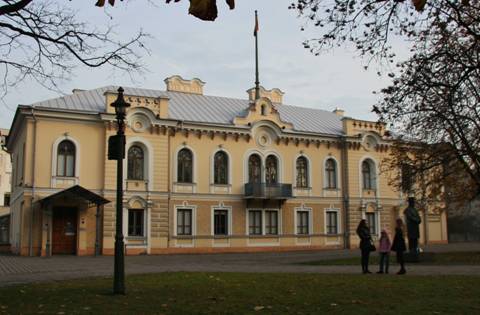
Read more about the Palace at http://www.istorineprezidentura.lt/?lang=en
Photo: Aage Myhre
The Historical Presidential Palace in Kaunas is a must-see place for everyone, whether native-born or a visitor to Lithuania. It is one of the most important memorials of the Republic of Lithuania in 1918–1940.
Visitors are offered an introduction into the evolution of modern Lithuanian statehood, the opportunity to feel the pulse of a growing city that suddenly faced the challenge of becoming a capital and rapidly changed from a fortress into a modern city.
The building was at the centre of major political events of the time. It housed the President’s meetings with the Cabinet, as well as numerous meetings with the representatives of foreign countries, military, clergy and various organizations. It was a fundamental landmark of Foreign Policy; emissaries of foreign states here offered their credentials to the President of the Lithuanian Republic. The building also witnessed the Coup d’état of 1926, a crisis of parlamentarism and a turn towards authoritarian regime. In the face of imminent Soviet occupation, the Last Meeting of the government of the independent Lithuania took place here on the night from June 14 to 15 of 1940.
- Bookmark :
- Digg
- del.icio.us
- Stumbleupon
- Redit it
- Posted by - (0) Comment
Looking for a hotel in Kaunas?
Try ‘House of Thunder’
(Perkūno Namai)
To read more reviews and book rooms in this or other
Kaunas hotels, go to VilNews Section 22
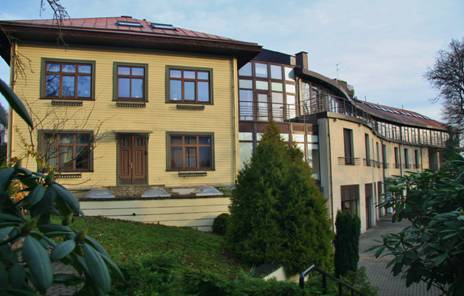
My preferred hotel in Kaunas. The family owned Hotel Perkūno Namai is beautifully located on a hilltop just outside Kaunas centre, surrounded by an amazingly attractive garden. The house to the left in the picture was built for the family in the 1930s. Perkūno Namai means House of Thunder.
Text and photos: Aage Myhre
Surrounded by centennial oaks Perkūno Namai just outside Kaunas centre has been a family owned and run hotel for 18 years, since 1994. The hotel also includes a high class international restaurant.
The hotel family has its long time roots from up here in Žaliakalnis – the Green Hill – where the site belonged to the present owners grand and great-grandparents. The family house adjoining the hotel was designed in 1930 by a family friend architect, a promoter of functionalism in Lithuania, Vytautas Landsbergis-Žemkalnis (father of today’s famous music professor and politician, Vytautas Landsbergis).
“We are very proud of the hotel’s well-groomed landscape: a rhododendron grove and an oak-tree hillock invigorate our guests, family members and staff all year round,” tells today’s director and co-owner Vidimantas Žekas when I sit down with him for a talk.
- Bookmark :
- Digg
- del.icio.us
- Stumbleupon
- Redit it
- Posted by - (2) Comment
Kaunas stories from
previous VilNews issues
Former President Valdas Adamkus:
Hiding in the woods near Kaunas
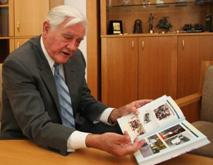 "I thank my friend Gabrielius Žemkalnis, brother of Vytautas Landsbergis, that I’m still alive. In the years of World War II, he and I joined the resistance movement for Lithuania's independence, together with Leo Grinius, by publishing and circulating the underground, anti-Nazi newspaper “Jaunime, budek!” (Youth, Be on Guard!) in Kaunas.
"I thank my friend Gabrielius Žemkalnis, brother of Vytautas Landsbergis, that I’m still alive. In the years of World War II, he and I joined the resistance movement for Lithuania's independence, together with Leo Grinius, by publishing and circulating the underground, anti-Nazi newspaper “Jaunime, budek!” (Youth, Be on Guard!) in Kaunas.
One day, in 1944, I was suddenly visited by Žemkalnis' sister. She said her brother had been arrested by the Gestapo, but that he had managed to whisper my name to her as he was led out of the apartment. She immediately understood that it was something he and I had together that I had to be warned about. I was still only 17 years old, but realized that this could be extremely serious, so I ran to the woods and hid there for a long time. Read more...
Professor Irena Veisaite:
Escaping from the Kaunas ghetto
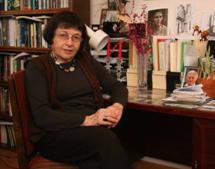 In August 1941 all the Kaunas Jews were imprisoned in the ghetto which was located in the Kaunas suburb Vilijampole. Irena stayed in the ghetto with her grandparents and one aunt. The 7th of November 1943 is a date Irena will never forget. Lithuanian friends of her parents, the Strimaitis family, had managed to convey a message to her in the ghetto, saying that she should follow one of the labour brigades out of the ghetto to the work place in town. They also had procured false documents for her. An agreement was reached with a Jewish policeman who was responsible for the list of workers that she should not be included on the list that day, but still follow the group out and then try to escape unnoticed into a side street as soon as they passed the ghetto gates. The moment of stepping out of the column of Jewish workers was the most horrifying and dangerous one in young Irena's life. But fortunately she made it without being detected. Read more...
In August 1941 all the Kaunas Jews were imprisoned in the ghetto which was located in the Kaunas suburb Vilijampole. Irena stayed in the ghetto with her grandparents and one aunt. The 7th of November 1943 is a date Irena will never forget. Lithuanian friends of her parents, the Strimaitis family, had managed to convey a message to her in the ghetto, saying that she should follow one of the labour brigades out of the ghetto to the work place in town. They also had procured false documents for her. An agreement was reached with a Jewish policeman who was responsible for the list of workers that she should not be included on the list that day, but still follow the group out and then try to escape unnoticed into a side street as soon as they passed the ghetto gates. The moment of stepping out of the column of Jewish workers was the most horrifying and dangerous one in young Irena's life. But fortunately she made it without being detected. Read more...
Attorney Regina Narusiene:
Hiding behind a blue Kaunas curtain
 “I was almost five years old, but I still clearly remember the day when a truck with Soviet soldiers drove up to our home in Kaunas. My father ordered me to hide behind the blue curtains in the home’s living room and not make even the smallest move or sound. Our family was to be deported to Siberia and the soldiers had come to take us. It felt as though it took an eternity before my father returned and told me I could come out from my hiding place. A truck with German soldiers had come up behind the Soviet truck, forcing the Soviets to leave. That probably saved our lives. As the Soviets were returning to Lithuania in 1944 we escaped to Germany, and after living in Displaced Persons camp for 5 years, in 1949 we emigrated to the United States.” Read more...
“I was almost five years old, but I still clearly remember the day when a truck with Soviet soldiers drove up to our home in Kaunas. My father ordered me to hide behind the blue curtains in the home’s living room and not make even the smallest move or sound. Our family was to be deported to Siberia and the soldiers had come to take us. It felt as though it took an eternity before my father returned and told me I could come out from my hiding place. A truck with German soldiers had come up behind the Soviet truck, forcing the Soviets to leave. That probably saved our lives. As the Soviets were returning to Lithuania in 1944 we escaped to Germany, and after living in Displaced Persons camp for 5 years, in 1949 we emigrated to the United States.” Read more...
Dr. Jonas Sliupas:
Declining the presidency (1926)
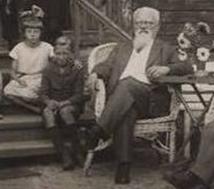 The year is 1926. It is a very dark late autumn evening in Kaunas, Lithuania's capital between 1st and 2nd World Wars, when three officers from the Lithuanian army rush up to the house where Dr. Jonas Sliupas now lives while he teaches at the University of Kaunas. It is nearly midnight when the officers knock heavily on his door and asks to come inside. The officers bring shocking news. They tell that since the early autumn of 1926 key officers within two army groups have been in full swing of planning a coup d’état in Lithuania, and that they have now reached the point that they want to depose of President Kazys Grinius and insert a new President. The question to Dr. Sliupas is therefore whether he can accept becoming the country's new President.
The year is 1926. It is a very dark late autumn evening in Kaunas, Lithuania's capital between 1st and 2nd World Wars, when three officers from the Lithuanian army rush up to the house where Dr. Jonas Sliupas now lives while he teaches at the University of Kaunas. It is nearly midnight when the officers knock heavily on his door and asks to come inside. The officers bring shocking news. They tell that since the early autumn of 1926 key officers within two army groups have been in full swing of planning a coup d’état in Lithuania, and that they have now reached the point that they want to depose of President Kazys Grinius and insert a new President. The question to Dr. Sliupas is therefore whether he can accept becoming the country's new President.
But Dr. Sliupas is not willing to accept. Read more...
- Bookmark :
- Digg
- del.icio.us
- Stumbleupon
- Redit it
- Posted by - (0) Comment
This week in politics
 |
New parliament sworn in Lithuania's new Seimas (parliament), elected last month, assembled for its first sitting on Friday 16 November. Read more… |
 |
The President did not show up All previous presidents always personally welcomed new deputies of the Seimas at their first session. Read more… |
 |
But the ex-President did Former Lithuanian President Valdas Adamkus says he is hopeful about the country's new Seimas. Read more… |
 |
Court adjourns hearing Vilnius Regional Court was this week scheduled to hear the Labour Party's fraudulent bookkeeping case, but… Read more… |
 |
New parliament speaker? Lithuania's Labour Party will propose Vydas Gedvilas for the post of parliamentary speaker. Read more… |
 |
President not yet ready President Dalia Grybauskaitė not yet ready to nominate Social Democratic Algirdas Butkevičius as new PM. Read more… |
 |
Uspaskich to leave Brussels The Labour Party's leader has decided to give up his mandate as a member of the European Parliament. Read more… |
 |
Polish party to head energy? Leader of the Electoral Action of Poles, Valdemar Tomaševski, remains secretive. Read more… |
- Bookmark :
- Digg
- del.icio.us
- Stumbleupon
- Redit it
- Posted by - (0) Comment
|
|
|
|
|
|
By Jon Platakis, National Lithuanian American Hall of Fame
Electricity filled the air as the audience packed the main hall of the Balzekas Museum of Lithuanian Culture in Chicago, Illinois on Saturday, November 3, 2012.
As Jon Platakis, founder and chairman of the National Lithuanian American Hall of Fame which sponsored the event, began his introduction, first, second, and third generation Lithuanian Americans, along with a contingent of students from Daley College, sat in eager anticipation.
- Bookmark :
- Digg
- del.icio.us
- Stumbleupon
- Redit it
- Posted by - (0) Comment
LITSHARES™
A strategy for global
financing of Lithuania’s
development
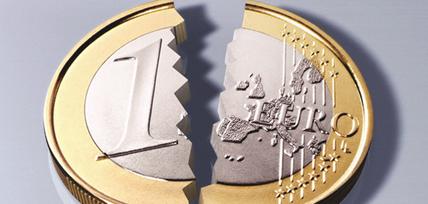
By Val Samonis
Given the dangerous European and global economic and strategic predicaments, Lithuania (LT) needs to adopt very bold and innovative ways to “sell” to the world its extreme austerity sacrifices during the continuing period of global Great (D)Recession and its earlier periods of bold systemic transformations as well. This proposal is a new strategy to globalize LT financial-economic ties (optimal global integration) so that the nation is no longer badly cornered and unduly dependent on the moribund European Union (EU) which is distracted and disoriented by the cacophony of austerity/profligacy controversies, and actually rewarding free riders by default. By now it is rather clear that Europe alone cannot properly reward the financial virtue and sacrifice of the LT people for the sake of the future (investment) which is the most distinguishing trait of a responsible nation and a mature leadership; hence the need for LT to go before the entire “global village”. Globalization can provide huge and underappreciated benefits for a nation like LT. Read more…
- Bookmark :
- Digg
- del.icio.us
- Stumbleupon
- Redit it
- Posted by - (0) Comment
Country comparator:
Lithuania has big
trouble growing
| Country | Current account balance (BoP, current US$) | Inflation, consumer prices (annual %) | GDP growth (annual %) | GDP per capita, PPP (current international $) | GINI index () |
|---|---|---|---|---|---|
| United States | -470.902 | 1.64 | 3 | 47153.01 | 40.81 |
| Canada | -49.307 | 1.777 | 3.215 | 39050.17 | 32.56 |
| Estonia | 0.673 | 2.974 | 3.105 | 20663.43 | 36 |
| Lithuania | 0.534 | 1.318 | 1.33 | 18147.98 | 37.57 |
| Norway | 51.444 | 2.399 | 0.677 | 57230.89 | 25.79 |
| Sweden | 30.408 | 1.158 | 5.61 | 39024.17 | 25 |
BoP: Balance of Payments.
GDP: Gross Domestic Product.
GINI index: measures the extent to which the distribution of income or consumption expenditure among individuals or households within an economy deviates from a perfectly equal distribution.
The latest comparative data show that Lithuania has big trouble growing even with the unprecedented sacrifices of the austerity policies by the Kubilius Government; and from very low levels. This data confirms my earlier predictions of big financial-economic collapse in Lithuania: bank and company bankruptcies.
Val Samonis
Toronto, Canada
- Bookmark :
- Digg
- del.icio.us
- Stumbleupon
- Redit it
- Posted by - (0) Comment
What can Lithuania learn
from its AAA-neighbours?
By Aage Myhre, Editor-in-Chief
Lithuania has powerful neighbours, as the overwhelming majority of the world's countries with AAA credit rating are located in Scandinavia and Western Europe. These countries, however, are successful in many different ways, not least with regard to social welfare, health care, education, rule of law, transparency, press freedom and a very good balance between government, business, education, science, and more.
The table below tells an interesting story about the relationship between these qualities for a group of nations that lead in world development. These tremendous success stories is something Lithuania should try to learn from.
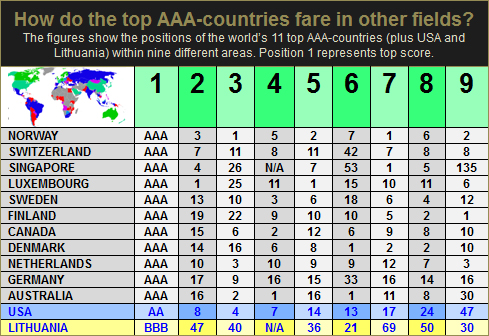
1. Credit rating, Standard & Poor’s
2. GDP (PPP) per capita
3. Human Development Index (HDI), UN
4. Best country to live in, OECD
5. Social welfare
6. Education
7. Rule of Law
8. Corruption, Transparency International
9. Press freedom
- Bookmark :
- Digg
- del.icio.us
- Stumbleupon
- Redit it
Triple Helix as model for a Nordic-Baltic vision?
- Posted by - (0) Comment
By Aage Myhre
I believe many of our readers have heard about or even studied the so-called Triple Helix model that emphasizes the need of cooperation and interaction between science, industry and government. I believe this is an extremely interesting model also for a Nordic-Baltic cooperation, as it describes an intensification of a process and a shortening of the time span between discovery and utilization, and increased reliance of industry on knowledge originated in academic institutions.
As knowledge becomes an increasingly more important part of innovation, the university (science and education) as a knowledge-producing and disseminating institution plays a larger role in business innovation. In earlier times, innovation was an activity formerly and largely performed by the industry or government, or depending upon the social system, a bilateral interaction between these two institutional spheres. In a knowledge-based economy, however, the university becomes a key element of the innovation system both as human capital provider and seedbed for new firms. The three institutional spheres (public, private, and academic) – that formerly operated at arms’ length – are increasingly interwoven with a spiral pattern of linkages emerging at various stages of the innovation and industrial policy-making process.
- Bookmark :
- Digg
- del.icio.us
- Stumbleupon
- Redit it
- Posted by - (0) Comment
The complicated Obama -
Grybauskaitė relationship
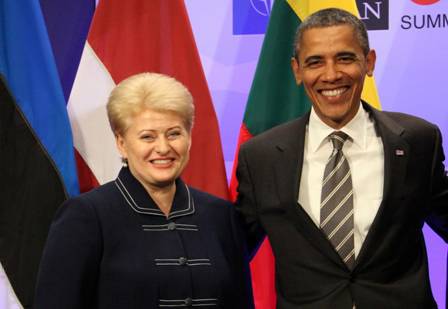
In 2010, Lithuanian President Dalia Grybauskaitė openly disagreed with
Obama on a new arms reduction plan, claiming it harmed Lithuanian
security, and in a rather shocking move refused to take part in
a dinner with Obama in Prague. Grybauskaitė was the only
invited president who refused to meet with Obama.
In April 2010, Barack Obama and his Russian counterpart Dmitry Medvedev signed a new arms reduction treaty in Prague, primarily with regards to the Eastern European missile defense system that had been planned by the George W. Bush administration.
After the signing, President Obama invited the presidents of Lithuania, Latvia, Estonia, and Romania, as well as the prime ministers of Poland, Czech Republic, Bulgaria, Croatia, Hungary, Slovakia and Slovenia to attend a dinner with him in Prague.
Lithuanian President Dalia Grybauskaitė openly disagreed with Obama on the new reduction plan, claiming it harmed Lithuanian security, and in a rather shocking move refused to take part in the dinner in Prague. Grybauskaitė was the only invited president who refused to meet with Obama.
- Bookmark :
- Digg
- del.icio.us
- Stumbleupon
- Redit it
- Posted by - (4) Comment
Obama is very popular
all over the world
U.S. re-elected president enjoys great confidence around the world. Let us hope that this confidence can contribute to less tension and increased human understanding between peoples and nations over the four years that are now ahead of us.
If the world outside USA had a say, President Barack Obama would have won with very clear margins over Mitt Romney, according to surveys presented in several world news media ahead of the U.S. elections. See below.
Unfortunately, there are no numbers available for Lithuania.
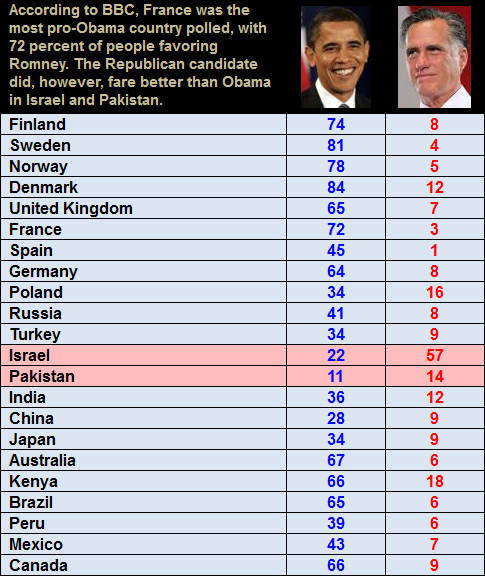
Read more at:
http://www.bbc.co.uk/news/world-us-canada-20008687
http://rt.com/politics/obama-romney-election-us-russia-putin-576/
http://www.jpost.com/DiplomacyAndPolitics/Article.aspx?id=289600
http://www.aftenposten.no/nyheter/uriks/usavalg/Verden-ville-valgt-Obama-7037530.html
World reactions to Obama’s reelection
From Australia, to China, Egypt and Russia ... hear people say "Obama" in different accents ... and watch some of them offer their more in-depth assessment of his second presidential election win
Viewpoints from around the world on Barack Obama's US election triumph, in which the incumbent democrat president held off the challenge from Republican rival Mitt Romney. The reaction was generally positive on the streets of Moscow, Beijing and Tokyo - though more mixed in countries such as Iraq and Egypt.
- Bookmark :
- Digg
- del.icio.us
- Stumbleupon
- Redit it
- Posted by - (0) Comment
 |
To those who still believe that the EU can use cutbacks as a mean to achieve growth, the first major study of the policies that have been pursued in recent years, shows that the effect has been the opposite. Austerity policy has only made matters worse. Read today’s article from ‘The Guardian’ and the below opinion posts. |
 Opinion: JP Hochbaum, Chicago
Opinion: JP Hochbaum, Chicago
The austerity trap
of the Eurozone
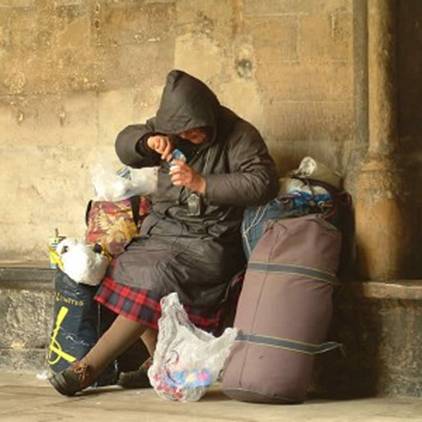
The effects of the austerity medicine that Lithuanians
have been forced to swallow is brutal
Lithuania is in an economic conundrum. The politicians want to be a part of the EU to become more viable economically and to separate from Russia. At least that is what I take from this as a United States citizen, as I can only speculate from what I read and what other Lithuanians tell me. But the entrance into the EU takes away the ability for countries like Lithuania to control their own economy. They are forced to go through austerity and dismantle their energy output, in order to please the EU powers that be. It is time for Lithuania to set a shining example for Eastern Europe and become an economic power in their own right by shedding the shackles that the EU imposes on them.
Lithuania would be wise to separate from the EU and to remain a sovereign country, both monetarily and governmentally.
- Bookmark :
- Digg
- del.icio.us
- Stumbleupon
- Redit it
- Posted by - (0) Comment
 Opinion: Irene Simanavicius, Toronto:
Opinion: Irene Simanavicius, Toronto:
Invite Brazil
to Tea

Three decades ago, for example, the Brazilian government gave aircraft manufacturer Embraer lucrative contracts and various subsidies, recognizing that it could potentially find a niche in producing smaller, regional aircraft. Private investors were dubious of Embraer’s chances. Had it relied solely on private investment, the company probably would have failed; instead, it flourished, becoming the world’s biggest maker of regional jets.
My question is... What is Lithuania going to do to get top tier corporations to take Lithuania seriously? Lithuania needs to get on board especially now with the slow economic temperature in Europe, we need investors that will TRUST Lithuania. We need Lithuania to trust Lithuania. We need to be investing in the country, providing jobs for Lithuanians, introduce some level of security for Lithuania.
Lithuania NEEDS a strong economy!
- Bookmark :
- Digg
- del.icio.us
- Stumbleupon
- Redit it
- Posted by - (0) Comment
“My writing is about Vilna,” says Abraham Karpinovitch in a new film
Thieves, whores, and
gangsters who supplied
color to our lives
By Ellen Cassedy
“My writing is about Vilna,” says Abraham Karpinovitch in a new film – “not about the Vilna Gaon [the renowned rabbi of 18th-century Vilnius] or about the clergy or the intelligentsia, but about the thieves, whores, racketeers, and gangsters who supplied color to our lives.”
The film is the latest in a series about Jewish writers directed by Boris Sandler, the editor of the New York-based Yiddish newspaper Forverts. Sandler presented the film, in Yiddish with English subtitles, at the Lithuanian Embassy in Washington, D.C., on October 18, under the auspices of Yiddish of Greater Washington.
- Bookmark :
- Digg
- del.icio.us
- Stumbleupon
- Redit it
- Posted by - (0) Comment
President Dalia Grybauskaite:
Labour Party
cannot participate
in new government
Lithuania's President Dalia Grybauskaitė has today stated that the Labour Party cannot participate in the forming of the new government.
- Bookmark :
- Digg
- del.icio.us
- Stumbleupon
- Redit it
Agree to form next government
- Posted by - (0) Comment

The leaders of three opposition parties agreed to form a ruling coalition following a meeting at one of Vilnius hotels after the Seimas election results emerged yesterday. The Social Democrats will nominate the prime minister. The announcement was made by Algirdas Butkevičius, leader of the Social Democratic Party of Lithuania, Viktor Uspaskich, leader of the Labour Party, and Rolandas Paksas, leader of the Order and Justice Party.
Photo: Irmantas Gelūnas/15 min
Leaders of Lithuania's three opposition parties agreed to form a ruling coalition following a meeting at one of Vilnius hotels after the Seimas election results emerged. The Social Democrats will nominate the prime minister.
The announcement was made by Algirdas Butkevičius, leader of the Social Democratic Party of Lithuania, Viktor Uspaskich, leader of the Labour Party, and Rolandas Paksas, leader of the Order and Justice Party.
"We have agreed to form a three-party coalition. We have agreed that a representative of the Social Democratic Party will be the prime minister. We have agreed to start drafting a government programme. A working group will be set up by the three parties, and we'll start reviewing the next year's draft budget next week," Butkevičius said.
- Bookmark :
- Digg
- del.icio.us
- Stumbleupon
- Redit it
VilNews e-magazine is published in Vilnius, Lithuania. Editor-in-Chief: Mr. Aage Myhre. Inquires to the editors: editor@VilNews.com.
Code of Ethics: See Section 2 – about VilNews. VilNews is not responsible for content on external links/web pages.
HOW TO ADVERTISE IN VILNEWS.
All content is copyrighted © 2011. UAB ‘VilNews’.

 Click on the buttons to open and read each of VilNews' 18 sub-sections
Click on the buttons to open and read each of VilNews' 18 sub-sections 










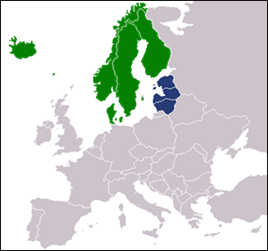

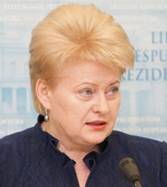









.jpg)



